
Hepatitis Monthly
Scope & Guideline
Transforming insights into impactful clinical practices.
Introduction
Aims and Scopes
- Clinical Research on Hepatitis:
The journal publishes studies that explore various aspects of hepatitis, including the clinical characteristics, treatment responses, and outcomes in patients with chronic and acute hepatitis infections. - Diagnostic Innovations:
Research on novel diagnostic methods, including non-invasive techniques for assessing liver damage and the detection of viral infections, is a core focus of the journal. - Pathophysiology and Mechanisms:
The journal highlights studies investigating the underlying mechanisms of liver diseases, including immunological, genetic, and molecular factors contributing to hepatitis and liver injury. - Therapeutic Advances:
Hepatitis Monthly covers advancements in treatment methodologies, including clinical trials of antiviral therapies, alternative medicines, and the efficacy of various treatment regimens in chronic hepatitis cases. - Epidemiology and Public Health:
Research on the epidemiological trends of hepatitis infections, public health initiatives, and the impact of social factors on liver health is a significant area of publication.
Trending and Emerging
- Non-invasive Diagnostic Techniques:
There is a growing interest in non-invasive methods for assessing liver damage, such as elastography and serum biomarkers, which are increasingly seen as crucial for patient management. - Impact of Comorbidities on Liver Disease:
Research that explores the interplay between liver diseases and comorbid conditions, such as obesity, diabetes, and cardiovascular diseases, is gaining traction, reflecting a holistic approach to patient health. - Molecular Biology and Genetics of Hepatitis:
Emerging studies focusing on the genetic factors influencing the progression and treatment response of hepatitis are becoming more prevalent, highlighting advancements in personalized medicine. - Long-term Effects of COVID-19 on Liver Health:
Given the pandemic's impact, there is an increasing number of publications investigating the long-term effects of COVID-19 on liver health and the implications for patients with pre-existing liver conditions. - Viral Hepatitis Elimination Strategies:
Research focused on strategies for the elimination of viral hepatitis, including targeted screening and public health interventions, is trending, aligning with global health initiatives.
Declining or Waning
- Traditional Herbal Treatments:
Though previously a focus, the publication of studies centered on traditional herbal remedies for liver diseases has declined, possibly due to a shift towards evidence-based pharmacological treatments. - Liver Transplantation Outcomes:
Research specifically detailing outcomes of liver transplantation has seen a reduction, indicating a potential shift towards other areas of hepatology that are currently deemed more pressing or novel. - Viral Hepatitis Epidemiology in Specific Regions:
While epidemiological studies are still published, the specificity of regional studies, particularly those focusing on less prevalent areas, has waned in favor of broader, more global analyses.
Similar Journals

Korean Journal of Gastroenterology
Connecting Disciplines for Gastroenterological ExcellenceKorean Journal of Gastroenterology (ISSN: 1598-9992, E-ISSN: 2233-6869), published by the Korean Society of Gastroenterology, has been a premier outlet for research and advancements in the field of gastroenterology since its inception in 1968. This open-access journal, based in South Korea, fosters a global dialogue on gastrointestinal health, embracing contributions from a diverse array of disciplines within medicine. It is currently ranked in the Q4 quartile for miscellaneous medicine and holds a Scopus rank of #323 out of 636 in general medicine, reflecting its commitment to publishing impactful research despite its relatively recent establishment in high-impact metrics. With a continuous publication timeline extending through to 2024, the journal aims to enhance understanding of gastrointestinal disorders and promote innovative treatments, making it an essential resource for researchers, clinicians, and students alike who seek to stay abreast of the latest developments and clinical applications in gastroenterology.
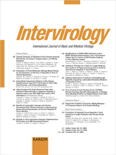
INTERVIROLOGY
Your gateway to cutting-edge virology discoveries.INTERVIROLOGY is a leading academic journal dedicated to advancing the field of virology and infectious diseases, published by KARGER. With a commendable history since its inception in 1973, the journal is currently poised to explore innovative virological research through to 2024. INTERVIROLOGY is indexed with the ISSN 0300-5526 and E-ISSN 1423-0100, reflecting its commitment to maintaining high scholarly standards. The journal is categorized within the Q3 quartile for both Infectious Diseases and Virology as of 2023, demonstrating its relevance and contribution to the academic community. With Scopus rankings placing it as #130 in Infectious Diseases and #41 in Virology, INTERVIROLOGY serves as an essential resource for researchers, professionals, and students seeking cutting-edge insights and discoveries in virology. While it currently operates under a subscription model, its rigorous peer-review process ensures a high quality of published content, making it a cornerstone for those dedicated to understanding and combating viral diseases.

Canadian Liver Journal
Exploring New Frontiers in Liver Disease Management.Canadian Liver Journal, published by University of Toronto Press Inc., offers a dedicated platform for the dissemination of cutting-edge research in the field of Hepatology. With an E-ISSN of 2561-4444, this journal plays a pivotal role in advancing knowledge related to liver diseases and therapies, currently ranked in the 3rd quartile (Q3) for the 2023 category in Hepatology—a reflection of its growing influence in the biomedical research community. The journal, which has been in circulation since 2018 and sets its sights on contributing valuable insights until 2024, aims to engage researchers, clinicians, and students alike by providing a rigorous peer-reviewed environment for sharing findings, case studies, and reviews pertinent to liver health. Through its commitment to excellence and scholarly impact, the Canadian Liver Journal serves as an essential resource for those dedicated to combating liver diseases and enhancing patient care.
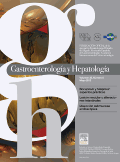
Gastroenterologia y Hepatologia
Connecting scholars to the forefront of gastroenterology and hepatology.Gastroenterologia y Hepatologia, published by Elsevier España SLU, is a distinguished journal dedicated to advancing the fields of gastroenterology and hepatology. With a publication history spanning from 1982 to 2024, this journal is recognized for its commitment to disseminating high-quality research and reviews that address critical developments in the diagnosis and treatment of gastrointestinal and liver diseases. Although it currently ranks in the Q3 quartile in both gastroenterology and hepatology based on the 2023 metrics, the journal continues to attract a global audience of researchers, healthcare professionals, and students eager to engage with the latest findings. The journal is accessible in both print and electronic formats (ISSN: 0210-5705), making its valuable insights reachable to a broad spectrum of subscribers. By fostering a platform for rigorous scholarly communication, Gastroenterologia y Hepatologia plays a vital role in shaping the future of research in these essential medical fields.
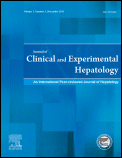
Journal of Clinical and Experimental Hepatology
Unveiling the latest in liver research and treatment.The Journal of Clinical and Experimental Hepatology, published by Elsevier - Division Reed Elsevier India Pvt Ltd, is a premier platform dedicated to advancing the field of hepatology. With an ISSN of 0973-6883 and an E-ISSN of 2213-3453, this journal has gained recognition for its impactful contributions to both clinical practice and scientific research in the domain of liver health. Ranking in the Q2 quartile for Hepatology in 2023 and positioned at 33rd out of 82 in Scopus’s Hepatology category, it reflects a robust impact factor and a commitment to publishing high-quality, peer-reviewed articles. Researchers, clinicians, and students can engage with a wealth of open-access content covering the latest advancements, challenges, and insights in hepatology, as the journal aims to disseminate knowledge from 2011 through 2025. Join the community of experts as we explore critical developments in the understanding and treatment of liver diseases.
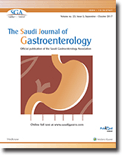
Saudi Journal of Gastroenterology
Advancing the frontiers of gastroenterology research.The Saudi Journal of Gastroenterology is a premier platform dedicated to advancing research and clinical practice in the field of gastroenterology. Published by Wolters Kluwer Medknow Publications, this open-access journal has been serving the academic community since 1995 from its base in India. With an ISSN of 1319-3767 and an E-ISSN of 1998-4049, the journal allows unrestricted access to a wealth of knowledge, fostering an environment where researchers, professionals, and students can engage with cutting-edge studies. As of 2023, it is categorized in the Q3 quartile within gastroenterology, ranking #74 out of 167 in Scopus, which places it within the 55th percentile of its field. The journal aims to disseminate significant findings, clinical trials, and innovative theories that shape the understanding of gastrointestinal disorders and practices. With a commitment to quality and relevance, the Saudi Journal of Gastroenterology is pivotal for anyone seeking to enhance their knowledge and expertise in this vital area of medicine.
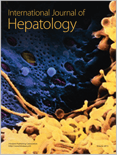
International Journal of Hepatology
Bridging research and clinical practice in hepatology.The International Journal of Hepatology, published by HINDAWI LTD, is a premier open-access journal dedicated to the field of hepatology. Since its inception, this journal has championed the dissemination of cutting-edge research and reviews pertaining to liver health, diseases, and therapies. With an ISSN of 2090-3448, the journal has been committed to open-access publishing since 2011, ensuring that vital knowledge is readily available to researchers, clinicians, and students worldwide. Based in Egypt, this journal stands out in its category, achieving a Q3 ranking in 2023 within the scope of Hepatology by Scopus, which ranks it #43 out of 82 in the field. The International Journal of Hepatology offers a platform for significant findings and discussions that influence clinical practices and foster new research directions, thus playing a crucial role in advancing the understanding of liver diseases and their management.

Hepatology International
Connecting experts to revolutionize liver health.Hepatology International is a premier academic journal dedicated to advancing the field of liver research and hepatology. Published by SPRINGER, this journal boasts a prestigious Q1 ranking in Hepatology as of 2023, underscoring its commitment to high-quality research dissemination. The journal’s scope encompasses a wide range of topics related to liver disease, including clinical, translational, and basic science studies. With its impact factor reflecting its relevance and influence in the field, Hepatology International serves as an essential resource for researchers, clinicians, and students aiming to keep abreast of the latest developments and breakthroughs. Though traditionally a subscription-based journal, it offers a vast array of insightful articles that contribute significantly to our understanding of hepatological conditions. The journal continues its trajectory of growth since its inception in 2008, anticipating a convergence of knowledge and innovation through to 2024. Located in the heart of New York City, this journal not only represents a crucial platform for global hepatology research but also fosters a collaborative community of experts dedicated to improving liver health worldwide.
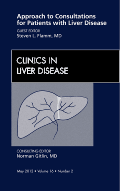
Clinics in Liver Disease
Exploring the frontiers of liver disease management.Clinics in Liver Disease is an esteemed peer-reviewed journal published by W B Saunders Co-Elsevier Inc, dedicated to advancing the field of hepatology. Established in 1997 and covering a broad range of topics within liver disease research, this journal serves as a vital resource for researchers, clinicians, and students engaged in the study of liver health and diseases. With a commendable impact factor placing it within the Q2 category in Hepatology and ranking #32 out of 82 in the Scopus classifications, it consistently disseminates high-quality research and clinical insights. The journal’s commitment to promoting understanding and management of liver diseases is reflected in its rigorous editorial standards and comprehensive review processes. Although not an open-access publication, Clinics in Liver Disease offers subscription options that ensure accessibility to up-to-date research and reviews critical for both academic and clinical success.

Viral Hepatit Dergisi-Viral Hepatitis Journal
Empowering research, transforming lives.Viral Hepatit Dergisi - Viral Hepatitis Journal, published by GALENOS PUBL HOUSE, is a preeminent journal dedicated to advancing the field of viral hepatitis research. With an ISSN of 1307-9441 and an E-ISSN of 2147-2939, it serves as a vital platform for the dissemination of cutting-edge studies and clinical findings related to the prevention, diagnosis, and treatment of viral hepatitis. The journal aims to foster collaboration among researchers, medical professionals, and students by providing open access to high-quality research articles and reviews. Although specific impact metrics such as H-Index are not detailed, the journal is well-regarded in its field, contributing significantly to the understanding of viral hepatitis and its global implications. Positioned in Istanbul, Turkey, it draws upon a rich academic tradition, ensuring comprehensive coverage of the subject. This journal is indispensable for anyone invested in the fight against viral hepatitis, enriching the scholarly literature while promoting informed practices in healthcare.